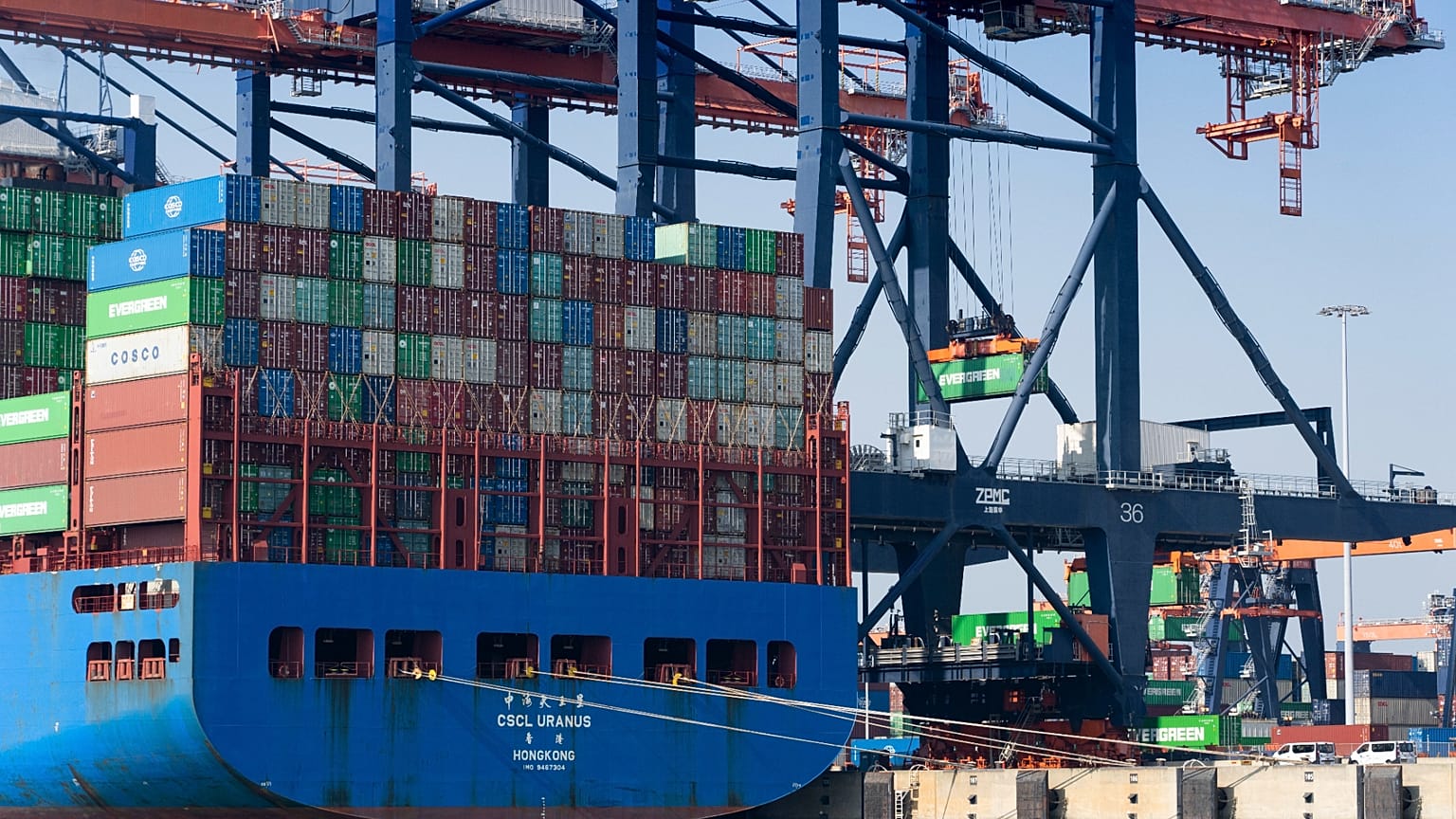Top Stories
EU Moves to Eliminate Trade Barriers with Mediterranean Partners

UPDATE: The European Union is taking decisive steps to abolish trade barriers with key Mediterranean partners, aiming to strengthen economic ties amid ongoing global uncertainties. A new strategic initiative, known as the Pact for the Mediterranean, is set to be unveiled in mid-October 2023, as confirmed by a European Commission document obtained by Euronews.
This ambitious plan seeks to align selected North African and Middle Eastern nations with EU single market regulations, marking a significant shift in EU trade strategy. The proposal emphasizes the importance of diversifying trade relationships away from traditional partners such as Russia and China, as highlighted by EU Commission President Ursula von der Leyen since she began her second term.
The pact aims to integrate existing agreements with new bilateral arrangements across various sectors, notably impacting countries including Algeria, Egypt, Israel, Jordan, Lebanon, Libya, Morocco, Palestine, Tunisia, and Syria. Authorities stress that consultations will also involve neighboring countries such as the Gulf states and Turkey, recognizing their strategic interests in the region.
The European Commission document outlines proposals for modernizing trade agreements, reducing tariffs, and enhancing market access through initiatives like Global Gateway and the Pan-Euro-Mediterranean (PEM) Convention. This move is seen as vital for building stronger economic frameworks and facilitating joint action in areas like digital governance, energy, and environmental standards.
“The push for inclusive trade and lower tariffs is critical,” the document states, highlighting the need for regulatory harmonization to attract investments and build joint value chains, particularly in clean energy and digital sectors.
Despite previous attempts at regional integration, such as the Barcelona Declaration in 1995, which aimed to establish a Euro-Mediterranean Free Trade Area that never materialized, EU member states now express renewed optimism. They are advocating for tangible changes that reflect current economic realities and the growing interconnectedness of Mediterranean economies.
The urgency of this initiative cannot be overstated, as instability in international relations continues to pose challenges for traditional trade avenues. The proposed measures aim to simplify trade procedures, support small and medium-sized enterprises (SMEs), and ease non-tariff barriers through structured dialogues.
As the EU prepares to present the Pact for the Mediterranean, stakeholders eagerly await the potential transformation of trade dynamics in the region. The implications of this strategic move could significantly reshape economic landscapes, fostering deeper integration and collaboration among Mediterranean nations.
The next steps will focus on finalizing the pact details and initiating discussions with partner countries, setting the stage for a new era of trade relations that prioritizes mutual growth and sustainability.
Stay tuned for further updates on this developing story, as the EU’s plans for the Mediterranean could have far-reaching impacts on global trade and cooperation.
-

 Top Stories3 months ago
Top Stories3 months agoTributes Surge for 9-Year-Old Leon Briody After Cancer Battle
-

 Entertainment4 months ago
Entertainment4 months agoAimee Osbourne Joins Family for Emotional Tribute to Ozzy
-

 Politics4 months ago
Politics4 months agoDanny Healy-Rae Considers Complaint After Altercation with Garda
-

 Top Stories4 months ago
Top Stories4 months agoIreland Enjoys Summer Heat as Hurricane Erin Approaches Atlantic
-

 World5 months ago
World5 months agoHawaii Commemorates 80 Years Since Hiroshima Bombing with Ceremony
-

 Top Stories3 months ago
Top Stories3 months agoNewcastle West Woman Patricia Foley Found Safe After Urgent Search
-

 Top Stories5 months ago
Top Stories5 months agoFianna Fáil TDs Urgently Consider Maire Geoghegan-Quinn for Presidency
-

 World5 months ago
World5 months agoCouple Convicted of Murdering Two-Year-Old Grandson in Wales
-

 World5 months ago
World5 months agoGaza Aid Distribution Tragedy: 20 Killed Amid Ongoing Violence
-

 World5 months ago
World5 months agoAristocrat Constance Marten and Partner Convicted of Infant Murder
-

 Top Stories4 months ago
Top Stories4 months agoClimbing Errigal: A Must-Do Summer Adventure in Donegal
-

 Top Stories4 months ago
Top Stories4 months agoHike Donegal’s Errigal Mountain NOW for Unforgettable Summer Views









